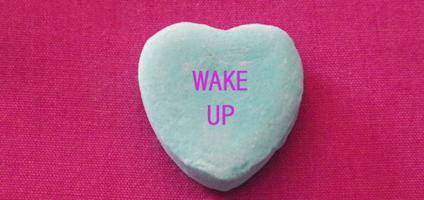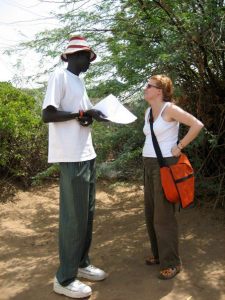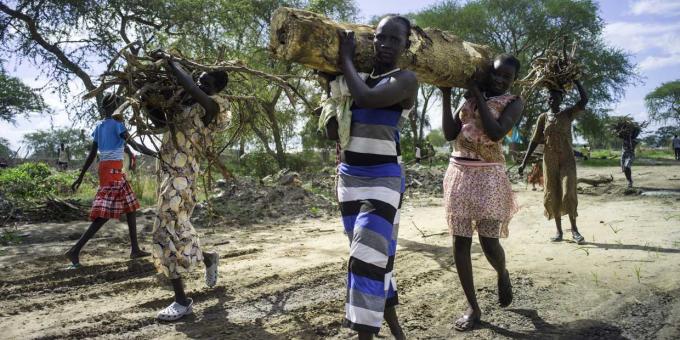
[Update: Sadly, MSF USA has chosen to edit the video that I link to in this blog. They say that this video that was never meant to be public but they want to keep the link up. However, they do not acknowledge anywhere or on the youtube link that they shortened it . This is extremely disappointing as it makes them seem as if they are covering things up and not serious about addressing the issues I raise here. I have notified them that I noticed and that I made a copy of the video before I published. in contrast, the female lead MSF UK and OC-Amsterdam have been very open to listen to women and men who have come forward since I published this to talk about their own experiences.]
This is my témoignage about the sexist culture of MSF Amsterdam where I worked from 2007-2011. Its the product of a lot of thinking and processing since the #metoo hashtag appeared, re-triggering lots of toxic memories and suppressed emotions. – Sarah Martin
The Beginning
I was thrilled when I got the news that there was a position available as Humanitarian Advisor at MSF Holland in the Humanitarian Affairs Department. This would be the perfect next step for me to build on my humanitarian advocacy work at Refugees International. Bringing my advocacy experience to an operational powerhouse like MSF that believed in speaking out and temoinage was truly a dream job for me.
I was not naïve as I entered MSF, however. I had been working for 4 years at Refugees International where I investigated and pursued issues that I found as I traveled to conflict zones and refugee camps in Liberia, Sierra Leone, Guinea-Conakry, Haiti, Democratic Republic of Congo, Darfur, South Sudan and Northern Uganda. I wrote about aid being mislaid and petty feuds between agency heads meaning that IDPs in Liberia didn’t get a food distribution. I wrote about the failure of the government to consult with IDPS before forcibly moving them to new towns in Sudan. I felt like these things helped a bit. But my real passion was writing about gender issues and trying to support women who suffered in these humanitarian crises. I have focused on these issues in my career ever since.
On my first ever Refugees International field trip in 2003, I met a female MSF Head of Mission in Liberia who told me about the trafficking of Ukrainian women into Liberia and started me on the path of learning about sexual exploitation and abuse. This led to my writing the 2005 report “Must Boys be Boys? Ending Sexual Exploitation and Abuse in UN Peacekeeping Missions,” in which I discussed the hyper-masculine culture of peacekeeping and how the international community had to stop turning a blind eye to the abuses of women and children in Liberia, Sierra Leone, Haiti, and the Democratic Republic of Congo. I met with MSF midwives and female humanitarian affairs officers uncovering the rapes in Darfur in 2004. They demanded that we do something and join them in speaking out. So I wrote about that and met with policy makers globally demanding change, lobbying for greater pressure from the US government to allow raped women to receive medical care without a police report and to refer Bashir to the International Criminal Court. While still working for Refugees International, I went to MSF clinics in DRC in 2005 where nurses told me about the horrors that raped women faced. So I worked with my colleagues and a new Senator, Barack Obama, to sponsor a bill to place greater US attention to the Congo and the terrible way women were treated there.
When I presented Must Boys be Boys at a press conference in New York with Prince Ze’id of Jordan (now head of OHCHR), I was denounced in the New York Times by the head of the Department of Peacekeeping Operations. In my press conference, I lined up against the UN lawyers and spoke my truth on behalf of the women who were ignored and raped and left with peacekeeper babies as the Department of Peacekeeping Operations tried to drown me in stale jargon and committees, and status of force agreements.
My male bosses at Refugees International didn’t bother to come to NYC during this event but my female coworkers supported me as I did rounds of interviews with the BBC, CNN, and even Fox News. My male colleagues? Well, I had numerous discussions with some of them about this “gender thing:” Was it really important and couldn’t it tear down support for peacekeeping and weren’t men just like this and besides everyone knows that men use sex workers in the field and stop being so naïve!?! When Glamour magazine, a US fashion magazine that writes about women’s issues, put me in their magazine as Glamour Hero of the Month for March 2006, I was teased at work instead of supported. I had to actually ask the RI communications director to put something on the website about our work on gender and GBV in case any of the MILLIONS of women who read Glamour might want more information to support it.
All this led me to believe that I understood sexism and indifference, intimidation and abuse. And I thought that MSF with its storied Nobel Prize winning history of temoignage and speaking out on behalf of the least powerful in the world was the obvious choice for me to move forward in my fight to support vulnerable women and girls around the world.
I thought I knew about toxic cultures, but I did not.
Life at MSF
I started as a Humanitarian Affairs Advisor in the Amsterdam headquarters at MSF Holland in April 2007. Almost immediately, a number of events made me realize that I had joined a sexist and toxic organization.
About a month after starting, I went to my first big meeting where all the country offices came to town. MSF- Holland HQ threw a big party in the cafeteria. Afterwards, everyone headed to the Eik and Linde, a bar right next door to our headquarters. I watched in shocked amazement as the alpha males of MSF raced around trying to hook up and sleep with as many women as possible. I was confused but tried to justify the behavior thinking, “Well they are in from the field, they must be really confined there,” until I realized it was very much the men of headquarters who were doing the chasing around.
During this big meeting, my department called a mandatory work dinner. I was excited to socialize with my new colleagues but then again shocked and confused when my new male boss introduced me to “the Game”. We were expected to go around in a circle and list from 1-10 who we wanted to sleep with at MSF. I thought it was some bizarre form of hazing. And as an American, I felt like ‘– wait – is this acceptable in European work places?’ Because in the US where I had worked previously, if a male boss tried to make his female employees listen to who he wanted to sleep with and list who they wanted to sleep with at a work event, they would be fired. But he was American, he knew this. And wow – all the women he named were about 20 years younger than him and were working in the front desk as volunteers at the office. So was this just a European thing?
And then the married advisor on the “cell” where I worked started going out drinking late with a male friend and with my much younger female intern (who confessed to me that the relationship was not platonic after many drinks out late at night). I was not surprised to hear later that he had been having lots of affairs and later left his wife for someone younger who worked with MSF.
And then there was the senior manager now in a position of power at another MSF section, who I was to “advise,” who also had a partner (and mother of his child) working in the office. I kept hearing about his numerous affairs with women. Field directors told me that they wished he was more discreet because he left all the text messages of the women on the shared country mobile phone whenever he left the country. I was disgusted by this blatant macho shagging around and was complaining about it to a dear friend at the organization, not knowing that she was secretly dating him and had no idea that he was sleeping with other women. I regretted causing her so much pain but mostly I started hating him for making her keep their relationship secret and not telling her about his affairs. She was angry at him and soon their relationship became a huge public drama in the office. The mother of his child had to watch humiliated as my friend broke up with him and everyone began to talk about it. My friend suffered anew when they got back together, only for him to cheat on her shortly thereafter with another woman in the organization who he met while traveling. To make matters worse, he made sure that MSF Headquarters created a job for his new partner in my friend’s department, forcing her to see her replacement regularly.
Throughout this sordid drama I kept asking myself: What kind of management would allow all this drama in their department? Aren’t managers also supposed to be in charge of the morale of their employees? Don’t they want people focused on the work, which is supposed to be about saving lives in humanitarian emergencies? Isn’t our work difficult and challenging enough without constant drama about all these sexual relationships on top of it?
Apparently not at MSF. Male managers – particularly those in the operations department – constantly prioritized their sexual pleasure over their job. Further, their male friends supported and encouraged it, or at the very least kept silent about it so as not to jeopardize their own climb through the ranks.
I recall trying to give a session at the Senior Management Training on the code of conduct and explain why you can’t have sex with sex workers or beneficiaries at MSF – only to be introduced and immediately knocked down to size by one of the HR men: “Here comes Sarah from HAD to tell you why you can’t do all of the things you want to do that are fun.” Fun. Oh yes, there is nothing more fun than resorting to sex work in order to support yourself and your family due to lack of other opportunities for women in the workplace. And listening to these men argue with me about the morality of paid sex work and “what about?” me about sex work in Amsterdam where it was legal. Always playing “devil’s advocate” and “poking holes” always challenging me, leaving me feeling angry and frustrated at the end of every session because I didn’t have a quick enough response to convince them. And I wasn’t enough of a “cool girl” just to go along with it. And feeling super grateful to the “one decent man” who I wish I could name, when he finally had enough of the disrespect coming from my training participants and told them that he agreed with me and shut them down. They respected him. He was a man. He was operations. He was everything I wasn’t.
But unlike the “one decent man”, a man with a good reputation and well respected, these very same male managers used their power as an aphrodisiac and women, who were ambitious and wanted to get ahead, knew they had to play this game of flattering them and flirting with them and even sleeping with them in order to advance. A lesbian friend of mine witnessing one of the debauched field-HQ parties asked me, “How do you do it? Look at these men. They are disgusting.”
My memories: Drunk married men slamming down shots and showing off to women always much younger than them. Sordid affairs. Shaking hands from alcohol in the morning. Lined faces from too many late nights at the local pub, the Eik and Linde.
The Awakening
Being in this environment took its toll. Mental health officers kept quitting. It’s like working in a junkie ward, one of them said to me. A male friend, who eventually burned out and quit MSF, saw me in a very bad place in the coffee room one day. He told me a story about working in the field with a bunch of toxic people and how someone took pity on him and invited him to dinner. Then he invited me to dinner. I couldn’t tell him why I was suffering even though I was not alone. It helped just to be in the company of a decent person.
Another woman at the Psychological Support Unit also helped. She listened and got me to a therapist. But she was told by her sexist boss, that this was not her job. Not her job to help the many of us who turned to her about MSF’s sexist and toxic culture? She was forced out. The same boss told another young women who worked at MSF that maybe she wasn’t cut out for humanitarian work when she asked to leave her placement early because male colleagues were harassing her, stalking her and issuing death threats to her. It wasn’t living in a mud hut in the middle of the Congo that was the thing this woman couldn’t deal with. It was the harassment from her male colleague. Ironically, he now positions himself as the champion to end sexual harassment in the organization, finally coming on board to the issue after 20 years there.
But still I stayed at MSF because there were all the people I had admired so much in the field doing amazing work to support vulnerable people in hard to reach places like Central African Republic and Syria and South Sudan. So many strong and good people. “It’s just a few rotten apples in the barrel.” I reasoned to myself.
So we fought to have trainings on sexual violence response for our sisters in the field (because it was almost only always sisters). And we fought to have a policy in place that all responses had to be prepared to respond to sexual violence in all cases. On my first field visit to the Central African Republic, our midwives and women told me about the high levels of violence against women there but no one wanted to do anything about it. The mental health officer was instructed not to address the issue. And I fought another female coworker for the right to support the women working in our rape clinics in DRC who weren’t allowed to communicate directly with me who could support them in their work. And I fought another colleague to go to India and meet the staff who had taken up addressing sexual violence on their own (without much support form headquarters). And fought for the Papua New Guinea project that was set up specifically because rape was so high there that the violence was worse than many of the places we worked. When I visited there, I had to argue with the male head of mission that “tribal violence” was not more important than the domestic violence and rape that the women we were trying to help were dealing with. They were always looking for a reason not to have to address violence against women. Finally, after so many women fought them to keep the Papua New Guinea program open, it was closed — “handed-over” to an indifferent government who always had the resources to respond but chose not to for years. What happens to those patients now? Who will care for those women, speak out on their behalf, and try to ameliorate the pain of rape and violence?
The Aftermath
And what happens to the MSF women who used to tell me after our trainings, when I raised self-care and sexual harassment and safety as an issue, about the manager who would try to break down their doors after a night of drinking, or who thought he owned them, threatening to end their precious humanitarian careers if they said anything? The senior executive at the bar late at night who stuck his hand up their skirt and leered at them knowingly? These women, usually in the field for the first time – often just left. They were too afraid that they would damage MSF if they said anything. They were willing to accept the damage themselves rather than risk the reputation of MSF. They kept silent with their stories of guys on the emergency team (the biggest cowboys of a cowboy agency) and notorious “womanizers” and talked about it only late at night with other women – passing on advice on how to manage these men. “Everyone knew” but these men are allowed to continue to harass and pursue women in the field. Their sexual pleasure is more important than committing to a professional humanitarian response and a workplace free from sexual harassment.
Speaking of refusing to committing to a workplace free from sexual harassment, watch Jason Cone, the current executive director of MSF USA here, on this video (https://www.youtube.com/watch?time_continue=2133&v=46X7BSoedEM) explain how he REFUSES to implement a resolution about making MSF sexual harassment free because “we are an organization full of human beings and there is no possibility for us to create an environment that is 100% free of those things… These things happen. I cannot commit to this because I have not seen a place where these things do not happen. The intent can be there but I will not commit to it.”
In other words, no different from the UN peacekeeping missions I investigated – boys will be boys. Despite the pleas of the MSF women trying to introduce this resolution, maintaining that MSF needs to be aspirational and change the culture, he continuously pushes back. How is he still the director in the litigious USA of all places when he refuses to address this culture? He makes a personal pledge to follow up on any reports, putting the burden on the women to come forward first and trust him. But will he do anything to change the culture? No. “I’m just telling you aspirations are good but human reality is what we are dealing with. I cannot deliver a workplace free of abuse of power or sexual harassment, anyone who claims they can is lying.”
How many women have to come forward though? One of the men who worked with me had three complaints filed by three different women against him after a field visit. The punishment? He was told he would have to travel with our female boss if he went to the field. So he moved to a different section of MSF working in the field – where who knows what happened to him. Certainly his career didn’t get hurt after these complaints. Coming forward and reporting, as most women know, means YOU leave the organization and nothing happens to the man – they bounce on to another position in the organization.
And I realize now, after I left in 2011 (after 6 months of sick leave that led to a failed re-integration), that I was willing to be damaged and absorb it myself rather than hurt the reputation of the organization. I loved MSF too much. But it was the love of a person in an abusive relationship with a toxic organization that prioritized the libidos and egos of its operational men over the emotional lives and careers of the idealistic young women who came to work there.
MSF was an ugly place to work. I have to admit that even mutual support and solidarity among the women was lacking. When I reached out to other women to see if they felt the same way I did, I left myself open to accusations of being a “typical American prude,” with a female colleague mocking my interest in responding to violence against women as my “gender thing.” Other women who I had looked up to in the organization were openly hostile because they were the ones who “owned” sexual violence response as an issue. They didn’t see the need to build a network to support each other from the men who would not be happy if their privilege was challenged. It was too dangerous to be seen as one of the feminist women bitching about the men’s behavior and how they acted. That might throw them out of the “cool girl” club and stop their climb to the top.
Time’s Up
So, MSF. You have turned a blind eye and let all this abuse and misbehavior continue. Women have tried to work through your systems, have put forward resolutions at general assemblies, have reported abuses, have fought for more programs to address gender-based violence. And what’s the answer? It sounds like year after year of “be patient” and “boys will be boys.” Not so different from the UN after all.
Well, time is up. The culture in MSF must change. Just as medical professionals know that you must lance a boil in order to allow the infection to drain out and the body to heal, we must lance the festering boil of sexist culture at MSF and allow the suppurating men who prey on women there to drain out so the organization can heal and do its work the way it was meant to be. The idealistic women working in MSF, the idealistic women donating their hard earned money to MSF and the vulnerable women and children in humanitarian zones depending on MSF deserve better than this.






 I was in Jordan as one of the authors of the revised
I was in Jordan as one of the authors of the revised